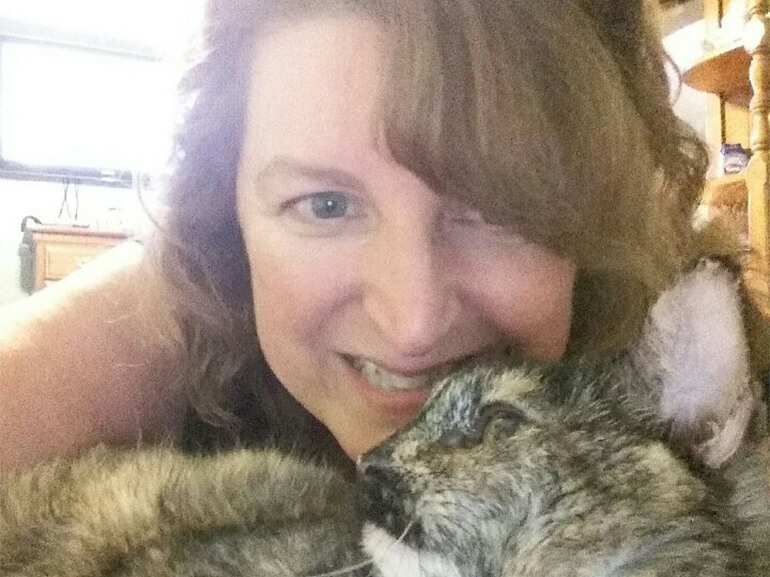Christina McClenaghan’s story

Whether taking reservations or welcoming guests for dinner, Christina McClenaghan’s effervescent personality turns strangers into friends at Polaris, a popular Columbus, Ohio restaurant. A year and a half ago, a stroke threatened to dim her bright light.
Without warning, the 48-year-old collapsed at home. Her boyfriend found her moments later, awake and unable to move. A blood clot on the left side of her brain temporarily paralyzed her. She couldn’t speak, eat or even stick out her tongue. “My boyfriend kept telling me it was going to be OK, that we would get through it,” Christina said. “I was thinking, though I couldn’t say it, ‘This isn’t OK! I love to eat! I love to talk!’”
Five days after the stroke, she transferred to OhioHealth Rehabilitation Hospital. It was the clear choice because the hospital had a program dedicated to stroke recovery. Physical, occupational and recreational therapy got her moving, walking, and interacting with people again. Frustratingly, her thoughts remained locked behind a mouth that wouldn’t move. She couldn’t kiss her boyfriend or sip from a straw. That’s where her speech-language pathologist, Kayla, became a trusted companion. Sitting together daily, they repeated fragments of syllables; Christina shaped sounds at first and eventually formed full words. She would build on the speech language exercises in group therapy. Christina watched others’ mouths move, then in turn Kayla stepped her through exercises designed to help her in the supportive group setting.
“The staff, they looked at me as a whole person. That was integral to keeping me on a positive path,” Christina said. “Kayla and I, we were always laughing or smiling about something even in the midst of our hard work. Her joy and dedication to my recovery helped me maintain motivation when I was feeling more than a little exhausted.”
With that encouragement, Christina launched herself into recreational therapy. Playing Jenga helped rebuild her fine motor skills. Word and matching games along with puzzles helped draw out the correct terms from the fog of injury.
Christina went home after 12 days, her boyfriend and employers ready to continue the support she found at the hospital. She returned to work part-time, challenging herself to speak instead of using a whiteboard to communicate. First, her colleagues understood her. Then the regulars. Finally, she regained the manager’s stand and welcomed customers again.
These days, when she’s not at work, Christina returns to both the acute care hospital and OhioHealth Rehabilitation Hospital, spreading hope to stroke patients and families just beginning their journey.
“I’m blessed that I’m able to share my experiences with other people,” she said. “But I am so inspired by them, too. I don’t believe life is over after you have a stroke. It’s just beginning in a different way.”